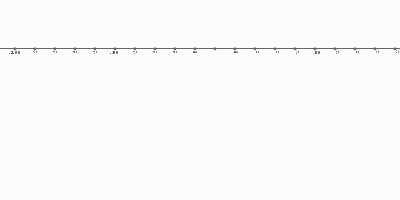Napoleon (oct 1, 1796 – oct 1, 1815)
Description:
1796 The war between France and other European powers continues. In Italy with his French army, Napoleon occupies Venice. City-states are no longer world powers. Some Europeans have been expecting liberation by the French, but Napoleon has been turning conquests into empire.1798 Napoleon invades Egypt with a plan to cut Britain's trade route to India (although the Suez Canal has yet to be been built). A British naval force, led by Admiral Horatio Nelson, smashes the French navy at anchor at Abu Qir bay, near Alexandria, Egypt – the French losing 6,200 men as casualties and prisoners.
1799 The Dutch join the war against France. The French are losing everywhere but in Egypt. Monarchists in France rise in revolt, expecting the arrival of foreign armies. Napoleon abandons his army in Egypt and returns to France. A military hero, much of the country rallies around him, as do politicians seeking to protect the revolution. In the guise of an emergency to save France from a leftist coup a three-man provisional government is created, one of whom is Napoleon as First Consul. The new order is approved by plebiscite. .
1801 Napoleon of France has defeated Austria. In the treaty of Lunéville, Austria renounces claims to the Holy Roman Empire.
1804 In the wartime atmosphere and as a defense against French royalty, the Senate in France votes in favor of Napoleon Bonaparte becoming Napoleon I, "Emperor of the French." Napoleon crowns himself emperor. Beethoven is enraged. He dislikes royalty and tears up the title page for his Symfonia Buonaparte, which will be known as his Symphony No.3.
1804 Spain joins Napoleon's war as an ally against the British.
1805 Russia, Austria and Sweden ally themselves with Britain.
1805 In Milan, Napoleon is crowned King of Italy. He is looking towards an invasion of England. A French fleet sails north to Spain's Atlantic port of Cadiz. Napoleon orders his French and Spanish ships out of Cadiz to do battle with the British. The British win, at the Battle of Trafalgar, frustrating Napoleon's invasion plan.
1807 Napoleon moves to consolidate his position in Europe. He defeats a combined Prussian and Russian force in February. Danzig surrenders to him. He defeats the Russians in June and occupies Königsberg. Alexander of Russia is annoyed with the British and agrees to meet with Napoleon. In August, Napoleon demands that Portugal join the trade boycott against the British and declare war on Britain. Portugal hesitates. Napoleon's ally, Spain, allows French troops to pass through its territory to Portugal. The French captured Lisbon as Portugal's royal family flees to Brazil.
1808 Napoleon intervenes in a quarrel between Spain's king, Charles IV, and the son of Charles, Ferdinand. He makes the two of them prisoners in a comfortable setting and moves his brother Joseph from the Kingdom of Naples to the throne in Spain. Spaniards resent the presence of French troops and Napoleon's interventions. An unusually barbarous war begins within Spain – with Napoleon as usual caring little about hearts and minds. Resistance to the French spreads to Portugal. The British land a force there to help the resistance. It is the beginning of Napoleon's decline.
1809 Napoleon is spread thin. The Austrians defeat him at the Battle of Aspern-Essling, and he loses his reputation for invincibility. The Austrians fail to follow up on their victory. Napoleon organizes an assault and defeats the Austrians. The Austrians make peace with Napoleon.
1809 Napoleon's economic blockade is not working. Britain's exports reach an all-time high.
1810 Allied with the Portuguese against Napoleon, the British negotiate an agreement with the Portuguese calling for the gradual abolition of the slave trade across the South Atlantic.
1812 Napoleon's march into Russia exposes his recklessness and shallow strategic thinking. His march into Russia is not going well. His three top-ranking subordinates urged a halt to the campaign. Napoleon agrees, but the following day he changes his mind. He doesn't want to admit folly or show weakness. On September 7 at the Battle of Borodino he losses 30,000 to 35,000 more men, dead, wounded or captured. A week later he is in Moscow. In mid-October he begins a terrible march back from Russa, ending his campaign with none of the army of 600,000 with which he began.
1813 Napoleon's move against Russia has delayed Russia's ability to protect their fellow Orthodox Christians, the Serbs, who have been rebelling against Ottoman rule. The Ottoman Empire moves against rebel Serb areas, and Albanian troops plunder Serb villages.
1813 Napoleon has failed to win enough friends. In Spain, British and Spanish forces defeat his military. Napoleon withdraws from Germany after the Russians, Prussians, Austrians and Swedes defeat him there. His Confederation of the Rhine falls into history's trash bin.
1814 Russian and Prussian forces enter Paris. Napoleon is exiled to the island of Elba. The terms of peace between the victors and France are settled in another Treaty of Paris. The victors over Napoleon gather at Vienna – the Congress of Vienna – to create a stable Europe to their liking.
1815 Napoleon returns to France in February. He inspires men to reach again for glory, and his final military defeat comes June 18th at the Battle of Waterloo.
1816 In France, the income of working people in terms of what it buys (real wages) begins a four-decade decline.
1821 Napoleon Bonaparte dies at the age of fifty-one under British authority on the island of St. Helena, the reported cause: stomach cancer. The English poet, John Keats, dies of tuberculosis at the age of twenty-six.
Added to timeline:
Date:
oct 1, 1796
oct 1, 1815
~ 19 years
